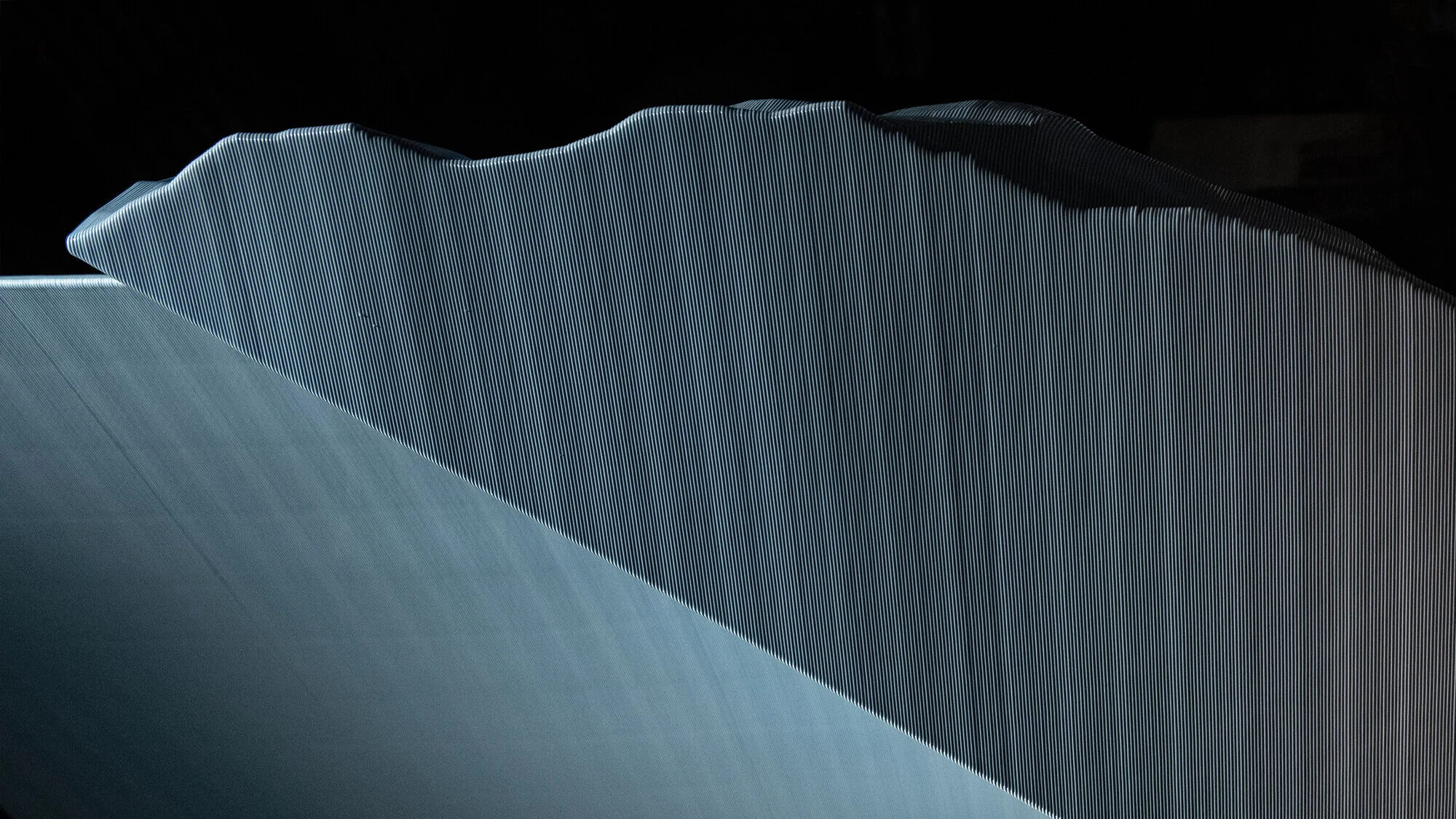Niccolo Casas unveils 3D-printed artwork made with Parley Ocean Plastic® for the Italian Pavilion at the 17th International Architecture Exhibition — La Biennale Di Venezia
Images by Giacomo Cousa
Parley is honored to co-present Plasticity – an installation conceived, designed and constructed by Italian architect Niccolo Casas in collaboration with Nagami and the Italian Pavilion for the prestigious Venice Biennale of Architecture. At 3.6 meters high, it is the largest structure ever to be designed with Parley Ocean Plastic® and was 3D-printed by innovative Spanish design brand Nagami.
The 17th International Architecture Exhibition of la Biennale di Venezia poses the social, political and spatial question inspired by Aristotle: “How will we live together?” The installation forms part of Resilient Communities, this year’s theme of la Biennale di Venezia’s Italian Pavilion curated by architect and academic Alessandro Melis, who invited architects to reflect and speculate on radical strategies for resilient communities in a call to take action on climate change. Responding to Melis’ brief, Plasticity embodies the expression of a radical vision for a new, eco-innovative architecture.
“Together with Parley for the Oceans and Nagami, we are committed to a joint effort with the aim of showing a vision of how architecture can be designed and built in the future but in particular, of how architecture can become an instigator and activator of circular economy. Plasticity is the avant-garde architectural example of what can be done with intercepted plastics from ocean cleaning activities.”
— Niccolo Casas, Principal and Founder of multi-disciplinary practice Niccolo Casas Architecture.
The sculpture, Plasticity, is a symbol of change that underlines the importance of a radical shift in the way we produce products and structures, now, for the future of our planet. The partnership represents our commitment to pushing the boundaries and calling in more industries to join us in a global Material Revolution.
The term ‘Plasticity’ comes from the syncretism of ‘plastic’ and ‘sustainability’. It refers to projects and initiatives related to the re-use and conversion of ready-made plastics. The piece aims to highlight the notions of transformation and conversion. It is the scientific property of a material to deform, undergoing permanent twists, acquiring new forms and properties. In architecture, as in art, the term refers to the quality of a work to freely articulate in space. Plasticity could be interpreted as the capability of a material to transform itself by acquiring new characteristics and dimensions through a process of identity redefinition.
Casas, Parley and Nagami’s innovative collaboration demonstrates that harmful waste plastics can be transformed into useful materials and, in this case, into a lightweight and complex architectural sculpture, through the implementation of digital technologies. The installation is a statement of the unlimited possibilities for generating new spatial articulations as well as instigating ecologically meaningful actions. The Italian Pavilion, Resilient Communities, at Biennale di Venezia will remain open to the public from Saturday 22nd May until Sunday 21st November 2021.















